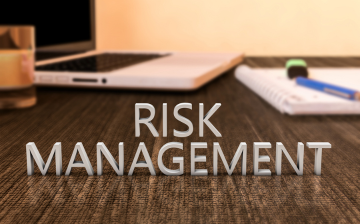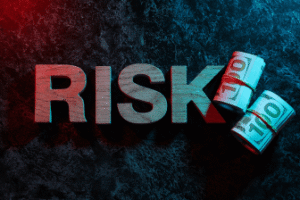
Is There a Risk Management Institute in India Where I Can Pursue a Course?
Is There a Risk Management Institute in India Where I Can Pursue a Course?
In today’s uncertain and rapidly changing corporate landscape, risk management is a critical driver of sustainable business growth. Organisations increasingly recognise that proactively identifying and managing risks can be the difference between success and failure. Consequently, the demand for skilled risk management professionals is rising, alongside growing interest in specialised risk education.
If you’re wondering whether there is a dedicated risk management institute in India to help build a successful career, the answer is yes. Several world-class institutions offer risk management education catering both to newcomers and experienced professionals. Among these, the Global Risk Management Institute (GRMI) stands out with its global curriculum, practical training, and excellent placement record.
The Growing Importance of Risk Management Education
Recent global events, market volatility, regulatory changes, and rising cyber threats have made it clear that organisations must understand and manage risk effectively. According to a 2024 industry report, the global risk management sector is expected to grow at over 7% annually. This growth is driven mainly by increasing regulatory demands and digital transformation.
India is seeing similar growth. Corporate risk functions are expanding rapidly, creating strong demand for trained professionals. Across industries, there is a rising need for people who can analyse uncertainty and design resilient strategies.
Pursuing a risk management programme in India equips students with techniques and hands-on experience. These help them manage financial, operational, strategic, and technological risks. The best programmes combine academic knowledge with industry experience. They prepare students to make well-informed decisions in complex environments like banking, insurance, consulting, and technology.
What Should a Quality Risk Management Institute Offer?
Choosing the right risk management institute in India is crucial for building a strong foundation. It is also key to advancing in this profession. The best institutes go beyond theory. They emphasise experiential learning through projects, internships, and case studies.
A top-tier institute will offer:
- Industry-Centric Curriculum: Covering enterprise risk, financial risk, cyber risk, regulatory compliance, and more.
- Experienced Faculty: Led by academicians and industry practitioners with global expertise.
- Corporate Exposure: Access to current industry trends and practical insights through partnerships.
- Placement Support: Assistance in securing relevant roles in risk and compliance.
Research shows that over 70% of organisations in India prefer candidates with specialised postgraduate qualifications in risk management. This reflects the value of programmes like GRMI’s PG Diploma in Risk Management (PGDRM). Institutes such as GRMI meet these criteria and deliver some of the most effective risk management education in India.
Dean and CEO of GRMI, Subhashis Nath, highlights the importance of industry connections and mentorship. These elements help students transition smoothly into professional roles. For example, Subhashis Nath engages in a thoughtful conversation with Shubham Chaudhary from the Class of 2020. They explore Shubham’s post-GRMI career journey, his growth, and key learnings that shaped his rise to a leadership role at Physis Capital.
Leading Risk Management Institutes in India
India hosts several institutions offering specialised risk management courses:
- Indian Institute of Risk Management (IIRM): Focuses on risk and insurance education, integrating regulatory and financial training suitable for finance and insurance sectors.
- Institute of Risk Management (IRM) India Affiliate: Provides internationally recognised certifications in enterprise risk management, with modular courses on strategic and operational risks.
- Global Risk Management Institute (GRMI): Known for its comprehensive, practice-oriented PG Diploma in Risk Management (PGDRM). It blends strategic managerial skills with technical expertise
GRMI PGDRM Course: Setting the Global Standard in Risk Education
The PGDRM at GRMI is among the premier risk management courses in India. This full-time, one-year diploma integrates academic rigour with industry exposure, analytics, and experiential learning.
Key Features:
- Comprehensive Curriculum: Covers financial, operational, cyber, environmental, and enterprise risk.
- Strong Industry Connections: Partnerships with leading consultancies, banks, and multinational corporations.
- Applied Learning: Includes live projects, internships, and simulations.
- Career Placement: Graduates secure roles across consulting, BFSI, technology, and manufacturing sectors.
Why Pursue a Risk Management Course in India?
India’s business environment is evolving, with increasing risk awareness. Benefits of studying risk management in India include:
- Affordable Education: Quality programmes cost a fraction of international equivalents.
- Global Recognition: Curricula aligned with international standards enable global employability.
- Practical Skills: Emphasis on real-world application through analytics, modelling, and frameworks like enterprise risk management.
- Diverse Career Opportunities: Graduates work in consulting, banking, risk advisory, insurance, and government sectors.
Industry analysis shows that the average salary for risk management professionals in India has grown by over 15% annually in recent years. This reflects the sector’s rapid expansion and growing demand for talent.
Future Career Paths in Risk Management
Graduates from reputable risk programmes can pursue varied careers, such as:
- Risk Analyst: Evaluates organisational financial and operational risks.
- Enterprise Risk Consultant: Designs frameworks to enhance business resilience.
- Compliance Manager: Ensures adherence to regulatory standards.
- Cybersecurity Risk Expert: Manages information security challenges.
- Operational Risk Manager: Oversees processes to minimise disruptions.
A 2024 NASSCOM survey revealed that demand for cybersecurity risk experts in India rose by nearly 25%. This highlights the growing importance of specialised roles within risk management.
How to Choose the Right Programme
When selecting a risk management course, consider:
- Institute reputation and global affiliations
- Depth and practicality of the curriculum
- Placement support and alumni network
- Alignment with your career goals (finance, analytics, enterprise risk, etc.)
Among these, GRMI is recognised as a leading choice due to its robust learning model, experienced faculty, and industry collaborations.
Conclusion: GRMI – Shaping the Future of Risk Management Education in India
For students and professionals keen on entering risk management, enrolling in a credible programme at institutes like GRMI can be transformative. Other institutes like IIRM and IRM also provide good education. However, GRMI’s PGDRM programme exemplifies excellence. It combines global exposure, practical training, and academic rigour.
If you want a future-proof, fulfilling career, the PGDRM at GRMI is an ideal choice.
FAQ’s
Q1: What are the eligibility criteria for joining a risk management course in India?
Ans: Typically, a bachelor’s degree in commerce, business, economics, or related fields is required. Some programmes also accept engineering or finance graduates.
Q2: Which is the best risk management institute in India?
Ans: The Global Risk Management Institute (GRMI) is widely regarded as the premier institute, especially for its PGDRM programme.
Q3: What is the duration of GRMI’s PGDRM?
Ans: The PGDRM is a full-time, one-year postgraduate diploma aligned with global standards.
Q4: Are there online risk management courses in India?
Ans: Yes, though full-time, immersive courses like PGDRM offer the most comprehensive training.
Q5: What job roles can graduates expect after completing a risk management course?
Ans: Graduates can work as risk analysts, consultants, compliance managers, enterprise risk specialists, among others, across consulting firms, banks, and corporate sectors.
For any queries please fill the form
You may also like

Which careers are truly safe from layoffs in 2026?

What Are the 3 Types of Credit Risk?


